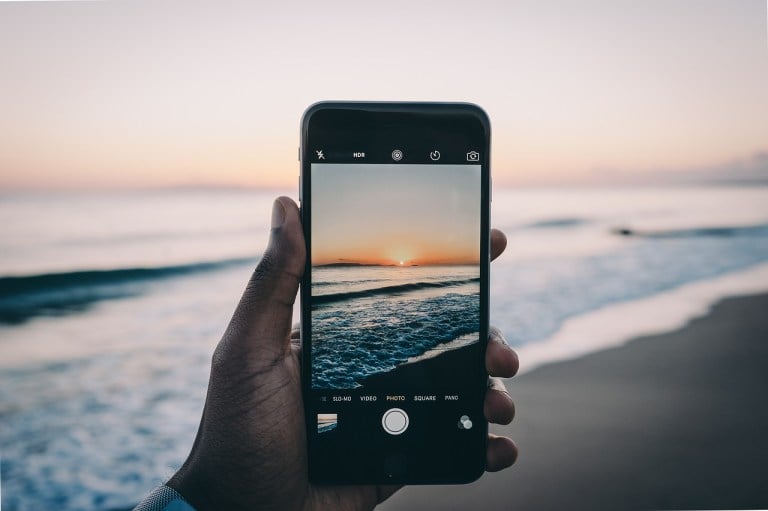At the beginning of the summer, I deleted my Instagram and Snapchat from my phone. Both of my accounts are technically still active, but I don’t check either on a regular basis (in fits of extreme boredom, I occasionally pull up Instagram on my computer, but otherwise ignore it). There was no sudden life change that prompted me to delete the apps – no Appalachian hike, Buddhist retreat or international trip. I simply decided that I was better off interacting with people face-to-face, immersed in reality, or not interacting at all.
At the end of my sophomore year of high school, my friend group broke up and left me friendless and ungrounded. During my junior year, I typically ate lunch alone in the library, and I rarely saw people outside of school – when I did, it was for group homework assignments. Not wanting to return to another year of social isolation, I took my senior year of high school through an online program.
Practically speaking, this meant I spent every day sitting in my bedroom, sometimes wearing my pajamas for multiple days without changing. My only contact with the outside world, my old world, was through Snapchat and Instagram. Every night scrolling through my Instagram feed, I was inundated with pictures of friend-dates over fancy lattes, bikinis and ocean sunsets and group prom photos. Snapchat offered the same pictures in real time, documenting the day-to-day I’d left behind.
Evidently, Snapchat and Instagram were unhealthy social media platforms for me during my year of social isolation, and deleting them was a welcome relief. I was never depressed by the content, but it made my loneliness acute and comparative in a way that disappeared when the apps left my phone. I enjoyed being completely cut off from the outside world — at least while that world excluded me.
Of course, my social position changed when I got to Stanford. After over a year of isolation, I was happily thrown into the world of teenagers once again, this time living in close proximity to sixty others my age. By the end of NSO, Instagram usernames and Snapchat groups had been well established. I still didn’t have either downloaded on my phone, but I gave out my usernames in order to seem normal, and in case I decided to re-download the apps for college.
To this day, though, I haven’t re-entered the world of picture-based social media. I did download Snapchat at one point, to please a well-meaning friend, but deleted it a few days later. Others have told me to get back on Snapchat and Instagram to avoid “missing out” on some of the highest quality humor produced by our dorm. Still, with the exception of Facebook messenger for one-on-one communication purposes, I’ve remained off the social media grid throughout fall quarter.
Of course, life does not become magically authentic and meaningful when you delete your social media apps. You don’t suddenly stop comparing yourself to others or gain an immediate sense of self-confidence and rid yourself of social pressures. Social media may augment the need to appear attractive, cool and popular, but only because those pressures already exist in real life. At first, deleting social media may even make those expectations feel more acute and painful, since you’ve removed yourself from our generation’s prime method of asserting social and personal status to a large audience.
Being off social media can make you feel smaller, more isolated, and less socially relevant than other people. You won’t experience the funny moments and bonding memories that come from Snapchat stories and Instagram feeds. You’ll feel like you’re missing out on something fundamental to the dorm community, and you’ll wonder if you’ve set yourself up for social isolation.
But, if you ever make a brief return to social media like I did, you’ll realize something else: your connections with people face-to-face are infinitely more valuable than what you learn on Instagram or Snapchat. Leaving social media behind, you’re forced to get to know people through a mutual relationship, not a passive viewing of a screen. You get to meet people as they are in real life, not as they portray themselves in pictures and 15-second videos. You worry less about group dynamics and more about your individual connections with others. Most importantly, especially in a large college community, you get to know people without the preconceived notions derived from the contents of their feeds.
I am not condemning social media as the root of all modern evils; certainly it has its social benefits and connective abilities. I only suggest you try, for a few weeks, to live without photo-based media, and see how it changes your social perspective. Whatever you decide — to re-download or never go back to Snapchat — you will get a chance to see people purely, without knowing their lives through their posted photos. I challenge you to give it a try.
Contact Avery Rogers at averyr ‘at’ stanford.edu.
